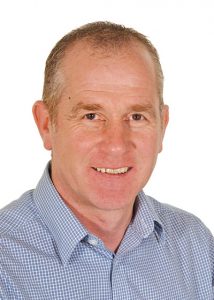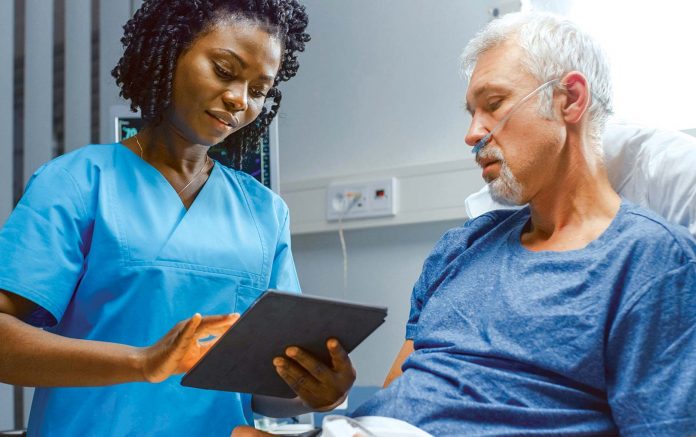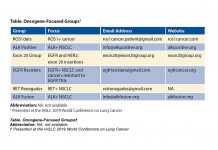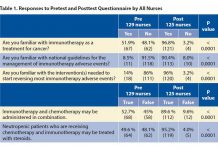By John McPhelim, RN, BSc (Hons)
Posted: March 1, 2019

Nursing—particularly communication—in lung cancer care is transforming as a result of the innovative use of supportive health technologies. Cell phones, tablets, laptops, and desktop computers are growing increasingly popular in the use of safety monitoring and communication with patients across a variety of healthcare settings. Technology-based communication offers a wide range of benefits such as remote face-to-face interviews and interpretation of digital data, which facilitates convenient care, hastens medical interactions, and negates the requirement for patients to travel long distances. Robust and protocol-driven electronic health strategies are flourishing.
The International Thoracic Oncology Nurses Forum Workshop at the IASLC World Conference on Lung Cancer, in Toronto, Canada, in September 2018, provided excellent examples of how technology can support the delivery of healthcare and how social media can be used, in the right circumstances, to share real-time data and information among health professionals while complementing patient communication.
Pamela Rose, a lung cancer specialist nurse at NHS Lanarkshire, in Scotland, United Kingdom, presented the findings of a project funded by the Scottish Government and Macmillan Cancer Support. Ms. Rose described the development of an electronic patient-reported outcomes measure that is intended to support patients’ use of an electric patient management system that facilitates communication between professionals and patients using a web-based platform. This service has been evaluated positively by users and has identified significant unmet needs in the participant group. Using this platform, patients complete an online assessment in advance of a consultation with their nurse specialist. This allows the nurse to prepare and focus on patient-identified needs. Furthermore, this electronic patient-reported outcomes measure has been very successful in identifying non-medical needs of patients, thereby delivering a rounded, holistic assessment that improves patient care and experience of care outcomes.
Liz Darlison, director of Mesothelioma UK, presented “Tag, Tweet, or Follow: Top tips for using social media in your clinical practice.” Platforms such as Twitter, Facebook, and similar electronic tools were demonstrated to be useful in a world where electronic interactions and communication are commonplace among patients. Using these tools can be of great value; however, their use must be carefully managed. Ms. Darlison highlighted the potential negative aspects to engaging in social media, so guarded caution is advised. For more on this topic, see the article about social media and clinical trials.
Sarah Cubbin, a lung cancer nurse specialist at the Clatterbridge Cancer Centre, Liverpool, United Kingdom, shared her working practice in the use of an electronic platform to assess and monitor patients remotely using an agreed protocol with her oncology colleagues. This initiative demonstrated feasibility, effectiveness in assessing patient symptoms, and patient acceptance.
There are numerous ongoing investigations regarding the use of technology in the delivery of cancer care. Roma Maguire, PhD, MSc, BN, of University of Strathclyde, Glasgow, United Kingdom, has conducted a study in remote monitoring of symptoms in patients with mesothelioma in which outcome measures such as symptoms and quality of life were evaluated. She is currently conducting a remote electronic symptom-monitoring study in Europe in patients receiving systemic treatments; recruitment to date includes more than 2,000 participants.
Electronic technology is now habitual in a large percentage of the public’s everyday life, and communication via various modes of technology is now the norm for patients. Without question, now is the time for the nursing community to embrace such technologies to foster secure, pragmatic systems to support and enhance delivery of care. ✦
About the Author: Mr. McPhelim is a lead lung cancer nurse specialist at NHS Lanarkshire, Scotland, UK, as well as treasurer of the International Thoracic Oncology Nursing Forum.











